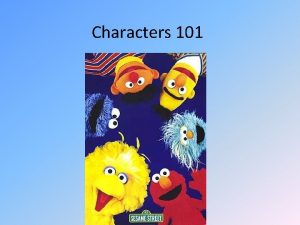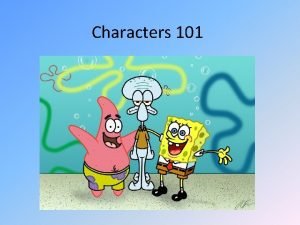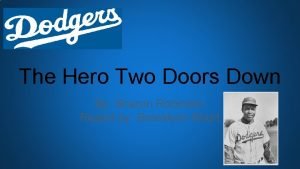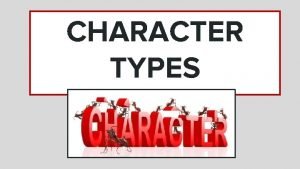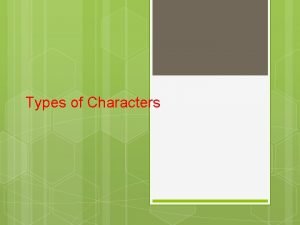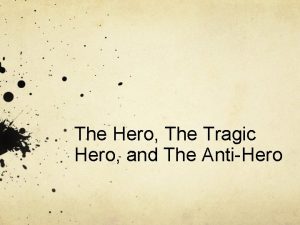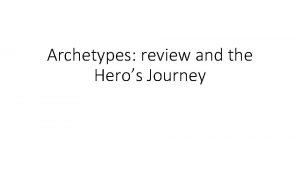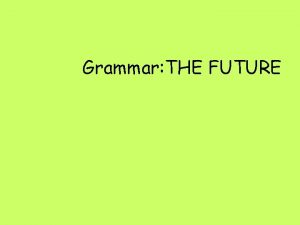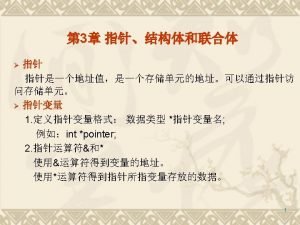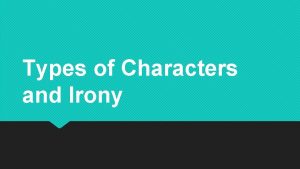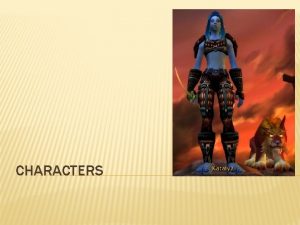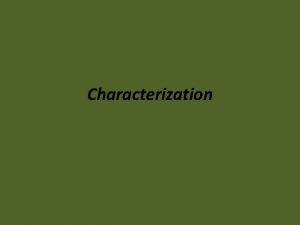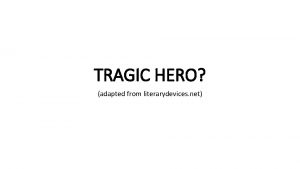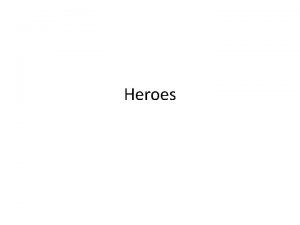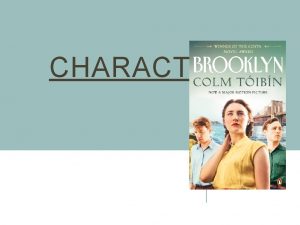Characters 101 Types of Characters Hero protagonist main












- Slides: 12

Characters 101

Types of Characters • Hero (protagonist) – main character of the story; drives the action • Villain (antagonist) – prevents the hero from reaching his/her goals; not always a “bad” character Which type of character does each woman represent?

Types of Characters, contd. • Flat – has only one or two personality traits • Round – has many traits which make him/ her interesting Which type of character does he represent?

Types of Characters, contd. • Static – character’s personality stays the exact same throughout the story – Flat characters are usually static • Dynamic – character experiences a huge change in personality during the course of the story – Round characters are usually dynamic Which of these types of characters best describes him?

Types of Characters, contd. • Stock – character who represents a stereotype What stereotype does he represent?

Describe a Character! 1. Think of a character from a story or movie. 2. Turn to your shoulder partner. 3. Describe your character using as much detail as possible. 4. Your partner will identify whether your chosen character is: Protagonist/Antagonist? Flat/Round? Dynamic/Static?

Two Types of Characterization • Direct – author describes a character’s traits (ex. physical appearance) • Indirect – personality described through actions, speech, thoughts, and interactions with other characters

How Does An Author Indirectly Describe a Character? • S – speech; what the character says • T – thoughts; what the character thinks • E – effect on others; how the character interacts with others • A – actions; what the character does • L – looks; what the character looks like

BRAIN BREAK: Guess the Celebrity

On a Half Sheet of Paper • Write down the name of someone famous – real, fictional, or otherwise. • If you think of more than one character, write them on separate pieces of paper. • Be prepared to make the class guess your celebrity!

Summarizer: 3 -2 -1 Exit Ticket • On the half sheet provided, write down: – 3 types of indirect characterization – 2 examples of a flat character (choose your own; explain how you know) – 1 reason that Superman (or another superhero of your choice) is a static OR dynamic character.

Partner Practice with STEAL 1. Find your 9 o’clock partner. 2. Use the textbook to complete the STEAL handout for your assigned character. (1= Travis, 2= Eckels, 3= T-Rex) - Include page numbers for each example - Explain what each example reveals about the character. Example: “We don’t belong in the Past. ” (pg. 42). This shows Travis understands the consequences of changing the future.
 Hero 101 characters
Hero 101 characters Hero 101 characters
Hero 101 characters 3 doors down hero
3 doors down hero The lottery point of view
The lottery point of view What are the types of characters
What are the types of characters A fiction story revolves around the minor characters
A fiction story revolves around the minor characters Static antagonist
Static antagonist Byronic hero characters
Byronic hero characters Anti hero traits
Anti hero traits The hero's journey character archetypes 101
The hero's journey character archetypes 101 Future with will
Future with will Implied main idea
Implied main idea Void main int main
Void main int main
